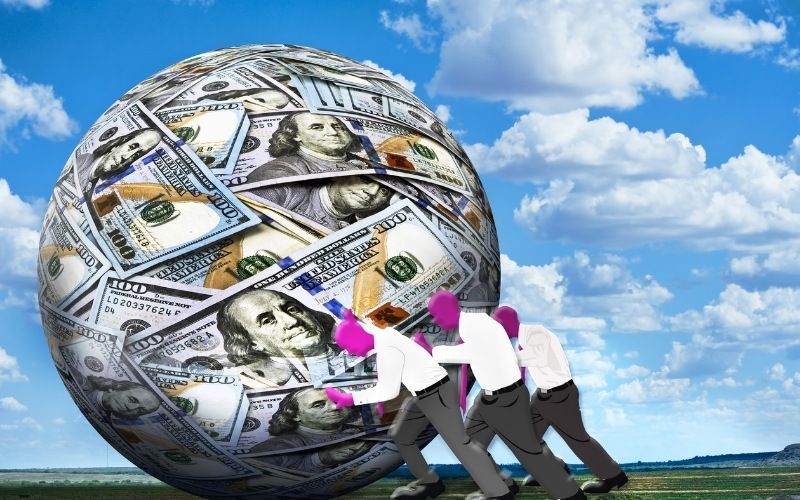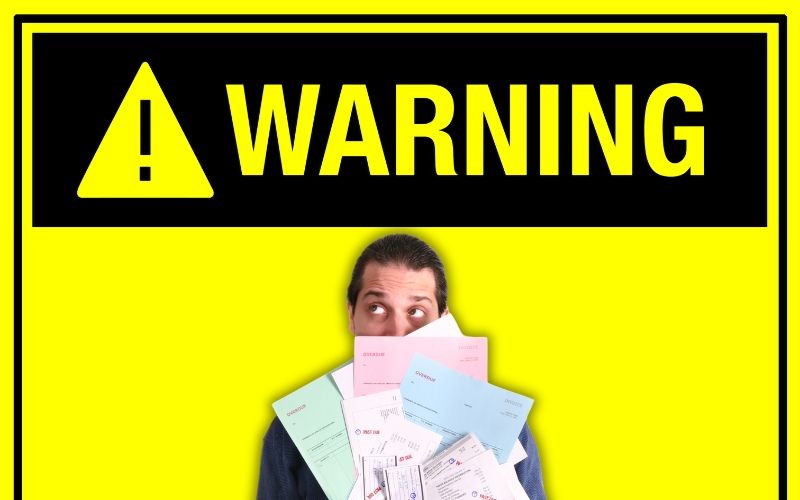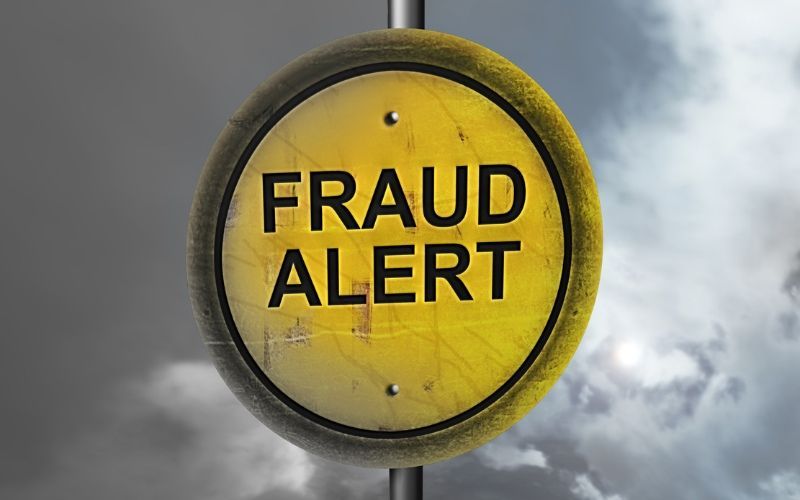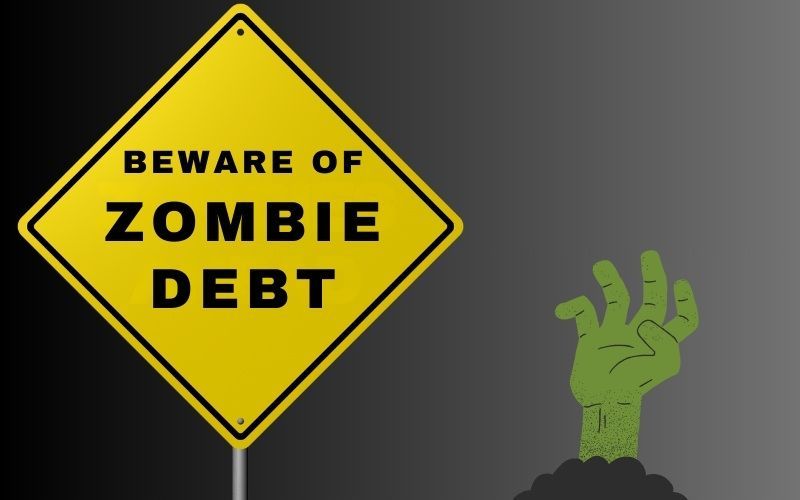Do You Get Out Of All Debts If You Declare Bankruptcy?
Last Updated: March 29, 2024
Eliminating Debt Through Bankruptcy
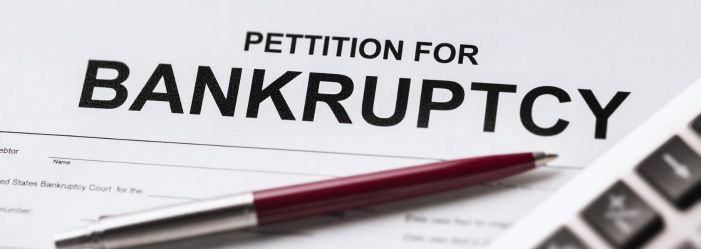
Disclaimer: We are not qualified legal or tax professionals and are not giving advice. Always speak with a qualified professional before making any legal or financial decisions.
Considering bankruptcy as a solution to overwhelming debt? It's essential to understand what bankruptcy can and cannot do for you. While many believe it offers a fresh financial start by wiping the slate clean, the reality is more complex.
Bankruptcy can indeed provide relief from certain types of debt, but it also comes with its own set of limitations and long-term implications for your credit health. This guide will teach you the bankruptcy process, explore the types of debts that can and cannot be discharged, and help you navigate your next steps towards financial recovery.
Whether you're considering Chapter 7 or Chapter 13 bankruptcy, it's crucial to arm yourself with the right information to make an informed decision.
Prefer direct interaction? Speak with our debt specialist right away by clicking here for a free consultation.
Do You Get Out of All Debts If You Declare Bankruptcy?
Bankruptcy gets tossed around like a get-out-of-jail-free card. Many people think that bankruptcy is the answer to any financial difficulty and it is an easy out. In reality, bankruptcy is expensive, and complicated, and may not erase all or even most of your debts. You’ll also affect your credit rating and history usually for up to ten years.
If you think you are on the brink of bankruptcy, let’s take a look a what bankruptcy can and can’t do for you. We’ll also answer “Can you file bankruptcy on medical bills and credit cards?”
Speak to one of our Debt Experts today for more information.
What is Bankruptcy?
Bankruptcy is a legal action ordered by a court of law. You file a petition in court to seek relief from some or all of your debts. Depending on the exact type of bankruptcy, you will either be released from existing debt or have your debt restructured for repayment. It gives you a chance to start over.
Bankruptcy does come with some problems. It is expensive and complicated. Your credit will take a hit for up to 10 years. There is a social stigma associated with filing.
Find out more information on bankruptcy alternatives.
Different Types of Bankruptcy
There are several types of bankruptcy. Four bankruptcies deal specifically with individuals.
- Chapter 7 is designed for individuals under a certain financial level
- Chapter 11 includes both individuals and businesses
- Chapter 12 is mainly for family-based farms or fish operations
- Chapter 13 is for individuals with assets and income but who need their debt restructured
Most people are interested in a Chapter 7 or 13 bankruptcy, so we will focus on these in this article.
Click here to read The Top 10 Most Common Bankruptcy Questions.
How Much Debt Do I Need to File Chapter 7?
How much debt you need to file Chapter 7 depends on your state’s median income. If you decide to file Chapter 7, you will compare your income to your state’s median income. If you make less than the state median, you can then proceed with the next step, a means test. If you make more than your state median income, you may be able to proceed based on the results of the means test. This allows people in areas with high housing costs and other similar factors to file for bankruptcy.
Your next step is to file a means test – subtract the average of the last six months of specific monthly expenses from your current (average of last 6 months) monthly income. This gives you your monthly disposable income. The higher this number is, the less likely it is that you will be able to file Chapter 7.
Disclaimer – Make sure you consult with a bankruptcy attorney in your state of residence before making any decisions.
How Much Debt Do I Need to File Chapter 13?
Chapter 13 is slightly different from Chapter 7. If you have a regular income, you will have a plan to repay all or most of your debt. At the time of writing, you must have unsecured debts of less than $394,725 and secured debts of less than $1,184,200.
Chapter 13 bankruptcy doesn’t require a means test. Instead, the court will look at your income to determine how long your repayment plan will last. If you make less than your state median income, you will usually repay your debts in three years. If you make more, you will repay your debts over five years, thus repaying more of your debt. During your repayment plan, creditors are forbidden to start or continue collection efforts.
Chapter 13 allows you to save your home. You must make all mortgage payments during your repayment period and you may make up delinquent payments during this time.
What Paperwork Do I Need To File a Bankruptcy?
When you file, you will need to provide:
- Lists of assets and liabilities including all property
- Current income and expenditures including monthly living expenses
- A list of all creditors, amounts and type of claims (executory contracts and unexpired leases)
- A statement of financial affairs including employer payments received 60 days before filing
- A statement of monthly net income including source, amount, and frequency of the income, and any anticipated increase in income or expenses
- A copy of the most recent tax return and any tax returns filed during the case
- Provide a certificate of credit counseling and a copy of any debt repayment plan developed through credit counseling
- Any interest in qualified education or tuition accounts
If you are married, you must provide the same for your spouse, regardless if only one person is filing.
Of course, there are specific forms that needs to be filled out. Your state’s bankruptcy court clerk will have a list of all the required forms plus any forms that are particular to your state. You may be able to fill them out online but will need to print them to be filed.
What Happens Once You File for Bankruptcy?
Once you file for bankruptcy, several events will occur. The court will declare a stay on legal actions against you. It stops creditor collection activities such as telephone calls, wage garnishments, and lawsuits (with some exceptions).
Filing temporarily stops repossession and foreclosure or eviction. If the account is still in arrears when the stay is lifted, you will lose the house or car in question. Eviction is subject to state laws and may or may not be stayed.
Once the court approves your bankruptcy, you will have some debts erased or you will have a repayment plan to complete. It generally takes three to four months to work your way through bankruptcy court.
Does Bankruptcy Clear Debt?
Bankruptcy generally clears unsecured debt such as medical and credit card debt. Medical expenses are one of the three most common reasons that people file bankruptcy. The other two reasons are job loss and divorce.
Debts that are cleared include:
- Credit card balances
- Medical bills
- Personal loans
- Utility debt
- Gym contracts
- Other unsecured debts
Bankruptcy does NOT clear:
- Student loans under most circumstances
- Child support
- Alimony
- Purchases on a secured credit card issued by a jewelry, furniture, or electronics store – these purchases must be returned
- Debts not listed in your bankruptcy papers
- Debts for personal injury or death due to intoxicated driving
- Fines and penalties for legal action such as traffic tickets and criminal restitution
- Debt related to fraud, depending on the court order
Can You File Bankruptcy Twice?
Yes, you can file for bankruptcy more than once. However, you must wait 8 years to the day between the date of the first discharge and filing the second bankruptcy.
When to Declare Bankruptcy
Filing for bankruptcy is a last resort. Before you file for bankruptcy, contact Pacific Debt, Inc. We may be able to help you get out of debt without the long-term damage to your credit report and the social stigma.
If bankruptcy is your only option, we highly recommend you seek legal advice. Filing is straightforward but requires a great deal of paperwork and deadlines. Legal representation can smooth your path. Speak to an attorney in your state.
FAQs
-
Can I file for bankruptcy more than once?
Yes, you can file for bankruptcy more than one time. However, you typically have to wait 8 years between Chapter 7 bankruptcy filings and 2-4 years between Chapter 13 filings. The court also expects major financial changes between filings.
-
What debts are discharged in Chapter 7 bankruptcy?
Chapter 7 bankruptcy discharges many common unsecured debts including credit cards, medical bills, personal loans, past-due utilities, lawsuit judgments, and more. Certain debts are non-dischargeable like student loans, child support, and recent tax debt.
-
Do I get to keep my house if I file Chapter 7 bankruptcy?
In some cases yes. You may be able to keep your home in Chapter 7 bankruptcy if you are current on payments and there is enough equity to be exempt. You can choose to reaffirm the debt, or the lender may allow you to repay the mortgage without personally being liable.
-
What property can creditors take in Chapter 7 bankruptcy?
Creditors cannot take any property that is exempt under Chapter 7 bankruptcy exemptions. This includes a portion of home equity, vehicles up to a value limit, retirement accounts, clothing, household goods, and more. Any non-exempt assets can be liquidated to pay creditors.
-
How long does the Chapter 7 bankruptcy process take?
The Chapter 7 bankruptcy timeline is typically 3-6 months from filing your petition to receiving a discharge order. This includes meeting administrative requirements, dealing with petitions from creditors, and awaiting court determination of your eligibility
Conclusion
Filing for bankruptcy provides a legal way to eliminate or repay certain debts you can no longer manage. But it's not an easy fix or decision. The first step is to talk to a professional. Connect with a Pacific Debt debt relief specialist today for a free consultation. Our experts can objectively assess your situation, explain all options available, and help determine the best path forward.
With customized debt relief and tailored payment plans, many find their burden lifted without having to file for bankruptcy. And if bankruptcy is your only option, we can guide you through the process.
Don't struggle alone. Whether credit card debt, medical bills, or other out-of-control payments, get a free expert review of your situation today. Our clients find solutions and the fresh start they need.
*Disclaimer: Pacific Debt Relief explicitly states that it is not a credit repair organization, and its program does not aim to improve individuals' credit scores. The information provided here is intended solely for educational purposes, aiding consumers in making informed decisions regarding credit and debt matters. The content does not constitute legal or financial advice. Pacific Debt Relief strongly advises individuals to seek the counsel of qualified professionals before undertaking any legal or financial actions.
Pacific Debt, Inc.
Pacific Debt, Inc. is a debt settlement company that works with your creditors to decrease the total amount that you owe. Your counselor will work with you to set up a repayment plan to discharge your debts typically within 24 to 48 months.
There are some downsides. Your credit will be affected for up to seven years, as compared to up to ten years for bankruptcy. You may still receive phone calls from creditors, but many creditors are willing to take something as opposed to nothing and will work with you.
Before you decide to file bankruptcy, take the time to consult with one of our counselors. You may be glad you did.
For more information, contact one of our debt specialists today. The initial consultation is free and our debt specialists will give you all your options.
RELATED POSTS
- Bankruptcies Projected To Hit Record Numbers By End of 2020 (August 25, 2020)
- California Residents Getting Sued Over Credit Card Collections Bills (July 23, 2020)
- How to Deal With Debt Collectors When You Can’t Pay (December 11, 2018)
- Should You File Bankruptcy Because You Can’t Pay Your Credit Card Bills? (October 12, 2018)
- Financially Stable Couples: How to Manage Marriage and Finances (September 20, 2018)
How Does Credit Card Interest Work?When Will A Debt Collector Sue?
Are you ready for debt relief help now?
Get Free Consultation- Accredited by Better Business Bureau with BBB A+ rating(4.93 rating and 1542 reviews)
- US News and World Reports and Bankrate ranked Pacific Debt as one of “The Best Debt Settlement Companies of 2020”
- 6.9 star rating by BestCompany.com (over 2379 client reviews)
- 4.8 star rating by TrustPilot based (over 1477 verified consumer reviews)
- ConsumerAffairs.com Accredited (over 543 verified reviews with an average rating of 5 stars)
- A Top 10 Rated Company by TopTenReviews.com , ConsumersAdvocate.com and Top10debtconsolidation.com
- 4.7 star rating by Google (220 client reviews)
- 100% rating by SuperMoney (9 client reviews)
Pacific Debt Relief
750 B Street Suite 1700
San Diego, CA 92101
Hours of Operation
Mon-Thurs: 6am - 7pm PST
Friday: 6am - 4:30pm PST
Saturday: 7:30am - 4:30pm PST
Clients
Phone: (877) 722-3328
Fax: (619) 238-6709
Email: cs@pacificdebt.com
Non-Clients
Phone: (833) 865-2028
Fax: (619) 238-6709
Email: inquiries@pacificdebt.com
"To eliminate debt one household at a time, while placing people first." - Pacific Debt
© 2024 Pacific Debt Inc. dba Pacific Debt Relief, all rights reserved.
California Privacy Policy |  Do Not Sell My Personal Information
Do Not Sell My Personal Information
GLBA Privacy Notice | CDRI Accredited Member
*We do not discriminate on the basis of race, color, religion, sex, marital status, national origin or ancestry.
*Please note that all calls with the company may be recorded or monitored for quality assurance and training purposes.
*Your visit to our website may be monitored and recorded from essential 3rd party scripts.
*Clients who make all their monthly program deposits pay approximately 50% of their enrolled balance before fees, or 65% to 85% including fees, over 24 to 48 months (some programs lengths can go higher). Not all clients are able to complete our program for various reasons, including their ability to save sufficient funds. Our estimates are based on prior results, which will vary depending on your specific circumstances. We do not guarantee that your debts will be resolved for a specific amount or percentage or within a specific period of time. We do not assume your debts, make monthly payments to creditors or provide tax, bankruptcy, accounting or legal advice or credit repair services. Pacific Debt is not a credit repair firm nor do we offer credit repair services. Our service is not available in all states and our fees may vary from state to state. Please contact a tax professional to discuss potential tax consequences of less than full balance debt resolution. Read and understand all program materials prior to enrollment. The use of debt settlement services will likely adversely affect your creditworthiness, may result in you being subject to collections or being sued by creditors or collectors and may increase the outstanding balances of your enrolled accounts due to the accrual of fees and interest. However, negotiated settlements we obtain on your behalf resolve the entire account, including all accrued fees and interest. C.P.D. Reg. No. T.S. 12-03825.





